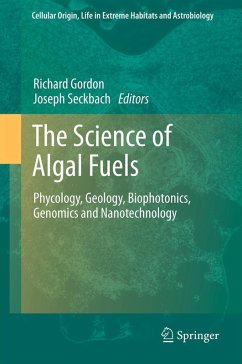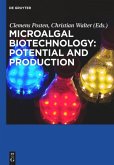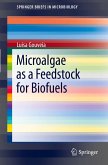This volume covers and updates the hot topic of biofuels, with numerous international meetings, conferences, congresses, and books on biofuels. Our 61 experts from several countries contributed 26 chapters to The Science of Algal Fuels. Each chapter has been composed as a review article and contains many references for further studies and has been peer reviewed. The target audience of this volume is workers in biofuels, graduate students in biochemistry and lecturers of phycology and biochemistry of the algal world. Algae, seaweeds and cyanobacteria, who are our stars in this book, live in marine and terrestrial habitats and require the Sun for energy, CO2 and aqueous surroundings. Since it is easy to culture algae in a large scale and they yield abundant biomass in a short period, there are farms that grow them in ponds for extracting their natural products. Micro and macro (seaweeds) can produce cheap and plentiful biofuel, biodiesel, or ethanol. The phycological yield to synthesize ethanol is 7.5 times higher than from a similar area of a sugar cane field. Biofuel (such as algal products) may soon be cheaper than the commercial pumping of underground and sea bottom fossil-oil, which causes more air pollution and depends upon political decisions from unstable countries. Industry seeks cheaper and more stable sources of fuel and algal fuel might be a good solution. Thus biofuel (biodiesel, oils, ethanol) might free us from unstable regimes with their dark gold sources, and from up and down oil prices. Unfortunately we have not yet reached this level as yet in spite of numerous contestants in this developing research. The industry is at present not in full gear to produce a substantial yield of biofuel from algae. Algal fuel is still a long range of strategy that will involve more R&D. Our hope is that this book will encourage the workers in this field to reach this promised land of algal biofuels in the not too distant future.
Bitte wählen Sie Ihr Anliegen aus.
Rechnungen
Retourenschein anfordern
Bestellstatus
Storno








